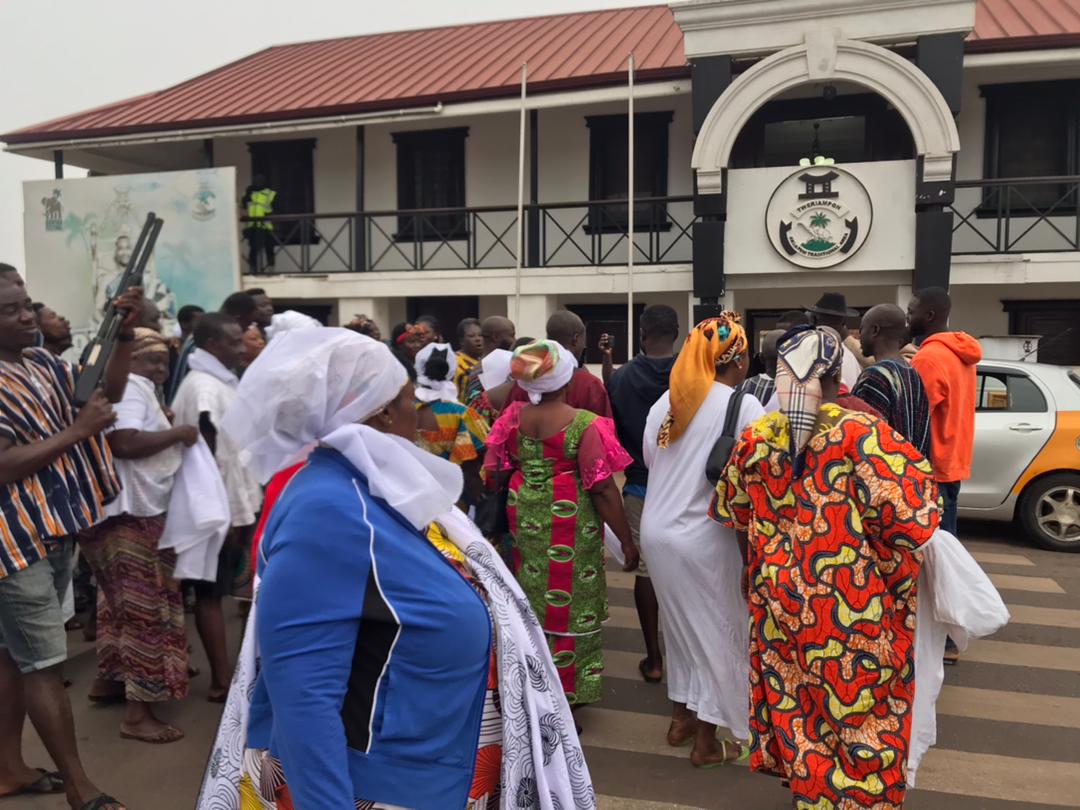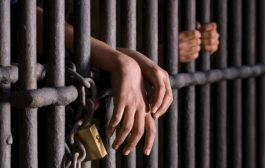Okuapeman traditional Council has banned noise-making in preparation for Odwira Festival.
The traditional rite (Adaebutuw) was performed by the Okuapehene Oseadeeyo Kwasi Akuffo III with his sub-chiefs at the palace on Wednesday evening of August 3, 2022.
“Adaebutuw” is observance is a period of retreat from the stool house and the stools. All forms of noise-making activities are banned the drums are not beaten, dirges are not sung, burials and funerals are not held and mourning is also banned. Fun-making activities of all sorts are also banned. In short, it is a period of showing reverence to the gods and sacred stools by keeping noise levels to the barest minimum.

The period of Adaebutuw is observed from the eighth Awukudae counted six weeks (adaduanan) before celebrating Odwira.
Persons who flout the ban on noise-making are summoned and fined to slaughter sheep to pacify the gods.
During this period, the people also prepare for the celebration of Odwira during the period.
Okuapehene Ankobeahene Nana Yaw Sakyi told Bryt FM that, the celebration of the Odwira festival is inevitable therefore it cannot be canceled or banned however can be adjusted during the pandemic, litigation among others.

He, therefore, emphasized that the 2022 Odwira festival is coming off as planned contrary to misinformation in the media
He said the Odwira festival will be celebrated from 12th September to 18th September 2022 right after the ban on noise making is lifted.
The Okuapehene Ankobeahene however said the traditional council has agreed not to hold durbar or carry any chief in paraquine due to some legal issues.

Adae
Every evening preceding an adae is marked by drumming to announce that the following day is an adae.
The exercise is known as Dapaatu.
Early the next morning, which is the adae moment in the morning; the drumming commences again informing the elders to the palace to greet the chief; to show hit supet on the Adae day.
The chief in return offers the elders some drinks. If the chief decides to honor someone by giving him a special position in the palace, or if some guests wish to visit the sacred room, the chief announces the program. The elders disperse to reassemble at about (3:00 pm) three O’clock in the afternoon when the drums are beaten.

The next day is set aside for updating the elders who live elsewhere, on the important issues that cropped up in their absence.
It is therefore compelling for all elders domiciled elsewhere to report for the celebration of every Adae at home.
If someone dies on the day of the Adae, or the day before, it is considered taboo, since it is viewed as a desecration of the Adae. In that case, the day is not observed and the relatives of the deceased have to sanctify the sacred stools by slaughtering sheep.
In traditional areas where the Odwira Festival is celebrated, the people celebrate the Adae in high esteem
Source: Mybrytnewsroom.com/Obed Ansah




















































